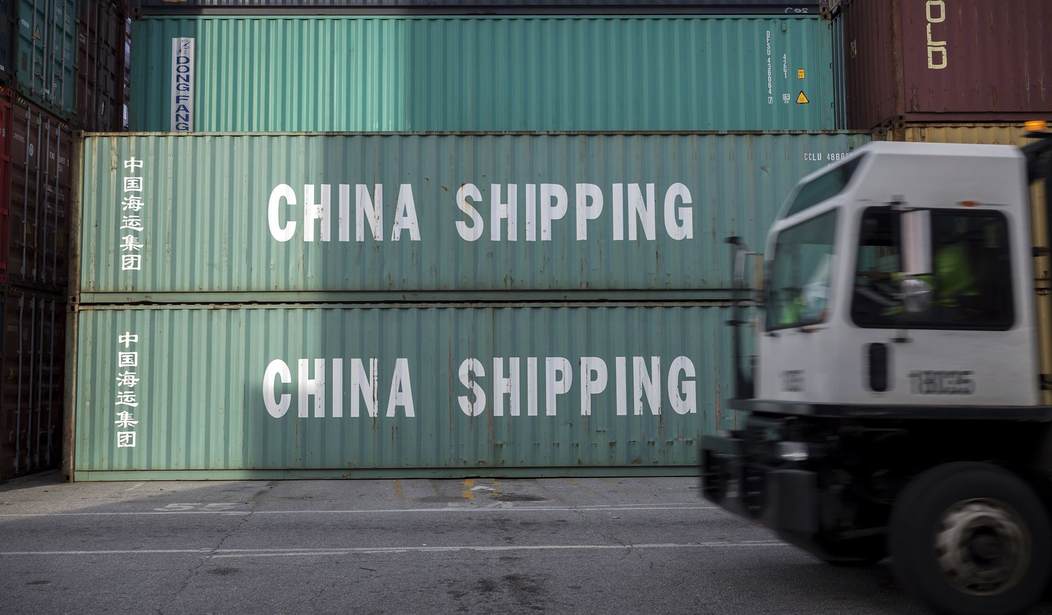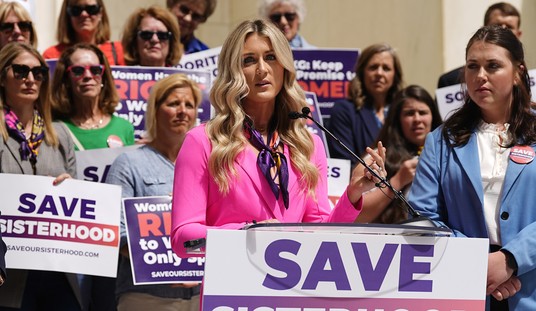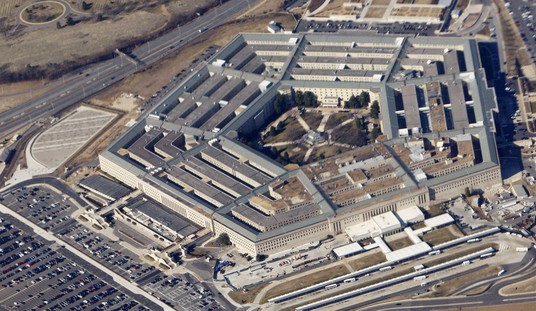Among the multiple self-inflicted crises facing Joe Biden, ever-worsening inflation, including runaway gas prices, continues to plague the embattled president most of all. And as is the case with his other crises, the buck-passer-in-chief ridiculously blames everyone and everything but himself.
Nonetheless, inflation is hurting everyday Americans and it is largely responsible for Biden’s ever-declining poll numbers. Despite the president’s continuing blame game, he is desperate to curb inflation — with the midterm elections looming right around the corner and 2024 not all that far off, either. So what’s the besieged old guy to do? As reported by Fox News, Biden is now considering lifting at least some of the tariffs on China that were put into place by former President Donald Trump.
Commerce Secretary Gina Raimondo confirmed the potential move on Sunday, saying Biden has personally asked her team to look into the issue. The same Gina Raimondo who, as noted by Fox, previously praised some of Trump’s tariffs on Chinese goods as “very effective.”
Before we get to Raimondo, let’s first revisit the basics of tariffs — how they work and who pays them.
First, despite former President Donald Trump’s continuing claim that China pays the tariffs he put in place, this is categorically false. Importers pay tariffs; not exporters.
So, as reported by Reuters, when Trump insisted — he still does — that “China is paying billions and billions of dollars to the U.S. Treasury,” or, “For 10 months, China has been paying tariffs to the USA,” he has either been confused or has purposely tried to mislead the country. I wasn’t there, so I don’t know which is true — but I do know that at least one of my conclusions was and remains correct.
The facts: Tariffs are a tax on imported products and are paid by U.S.-registered firms to U.S. Customs when goods enter the country. Importers then pass the costs of tariffs on to customers — U.S. manufacturers and consumers — exactly the same way all costs are passed along: by raising prices.
As noted by Reuters, U.S. business executives and economists say U.S. consumers foot much of the tariff bill. That was why, as Reuters noted, immediately after Trump announced his decision to slap tariffs on Chinese products, multiple U.S. retailers blasted the move as “another tax increase on American businesses and consumers,” which they warned would ultimately threaten the U.S. job market and lead to inflation — borne in large part by increased costs for American families.
Incidentally, more than 90 percent of tariffs collected on Chinese goods have gone to disgruntled farmers. Via the Council on Foreign Relations in October 2020:
In 2018 and ’19, Trump authorized payments to U.S. farmers of $28 billion to offset their losses from Chinese trade retaliation. This [2020] year, with farmers struggling under the twin crises of the trade war and the pandemic, bailouts have soared way higher. Trump promised angry farmers another $19 billion in April and $14 billion in September —bringing his bailouts to a grand total of $61 billion [as of October 2020].
So how does China “pay”? In a word, through fewer sales of affected goods.
Chinese companies on which tariffs have been imposed lose business when U.S. importers look for cheaper, tariff-free sources of the same goods outside China, so one of three things generally happens: Consumers buy similar goods manufactured in other countries; they continue to buy Chinese goods at higher prices, or they do without those products. That is the bottom line.
Back to Biden and Raimondo.
Raimondo told CNN in an interview on Sunday when asked about whether the Biden administration was weighing lifting tariffs on China to ease inflation — not a set-up question at all — as transcribed by Reuters:
We are looking at it. In fact, the president has asked us on his team to analyze that. And so we are in the process of doing that for him and he will have to make that decision. There are other products – household goods, bicycles, etc – and it may make sense.
“Shockingly,” China agrees with Team Biden and has argued that eliminating tariffs would cut costs for consumers — and thus, inflation, to a degree. Needless to say, differing opinions abound — mostly along political lines — with some experts arguing that lifting Chinese tariffs would ease inflation and others suggesting it would not.
The larger question in my mind is the principal cause of the current inflation crisis. As even NBC News reported in February, supply chain issues, surging demand, production costs, and Biden’s monster $1.9 trillion American Rescue Plan Act of 2021 appear to be the main culprits. Brian Riedl, a senior fellow at the Manhattan Institute and a former chief economist for Sen. Rob Portman, (R-Ohio), nailed it.
Fiscal policy has been extraordinarily aggressive, and the main example was the American Rescue Plan that was enacted last March, which shot a $1.9 trillion bazooka into a $420 billion output gap.
The Biden administration of course disagrees, noted NBC News, placing much of the blame on U.S. corporations. I’m not an economist, but simple math — injecting $1.9 trillion into a $420 billion hole — makes sense to me as the primary culprit.
As a result, it seems to me that Biden’s desperate focus on China tariffs is tantamount to putting a bandaid on a gaping wound. Not to mention, one more shot at Trump.














Join the conversation as a VIP Member